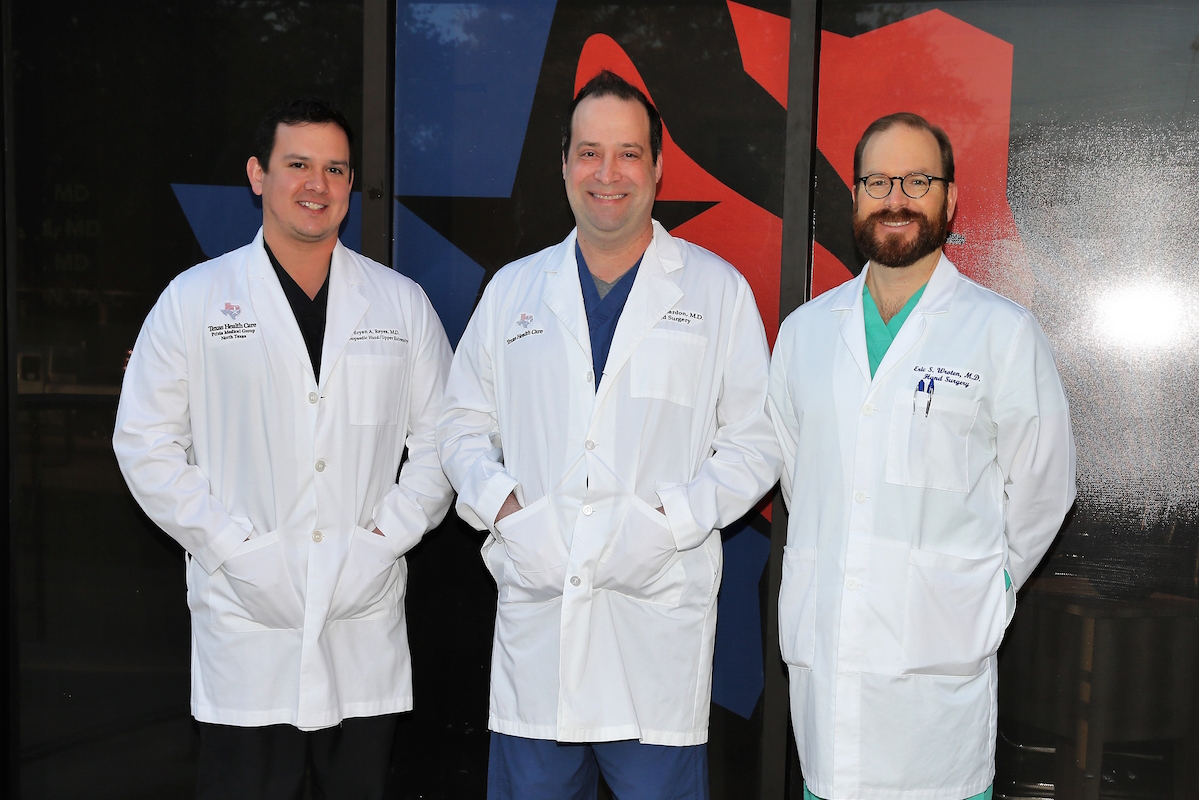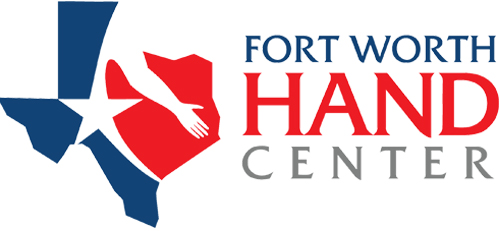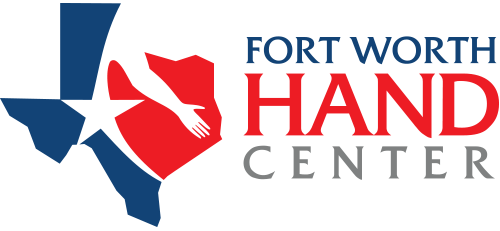Your local Fort Worth orthopedic surgeon can help resolve many musculoskeletal conditions that often keep people like yourself from living life pain-free and doing what they enjoy most without feeling limited. This can include everything from simple wrist sprains, finger strains, and hand fractures to carpal tunnel syndrome, traumatic injuries, and even deformities. If you’re like most people, you’ll be looking for someone with a strong educational background and a compassionate bedside manner to get you back on your feet. The same thought process likely applies to other doctors who wish to partner with a reliable orthopedic surgeon. That said, there’s value finding a Fort Worth orthopedic surgeon who has also secured additional fellowship training.
Perhaps you’ve noticed the term “fellowship-trained” or “fellow” on an orthopedic surgeon’s bio and wondered what that means. You may also wonder why not all orthopedic surgeons are fellows. The answer lies in the additional training these professionals undergo to earn this special designation. In becoming fellowship-trained, they’ve completed what’s known as a fellowship program to become a specialist in their chosen field.
Only the best candidates are selected to become fellows, and the good news for you in choosing them to provide care is whether you’re dealing with a sports injury, chronic joint pain, or a complicated fracture, a fellowship-trained orthopedic surgeon brings an added layer of confidence and peace of mind to your treatment plan.
Are You Experiencing Any of These Orthopedic Hand Issues?
- A nagging injury that won’t heal
- Chronic pain from an old injury
- Swelling
- Numbness and tingling
- Decreased range of motion
- Obvious deformity
- Joint instability
- Arthritis
- Weakness in joints and ligaments

Does Fellowship Training Really Matter?
It is important to note that all orthopedic surgeons—regardless of where they are located, what school they went to, and what areas of the body they specialize in—took a rigorous path to get where they are today. According to the American Academy of Orthopaedic Surgeons, these medical doctors have completed 13 to 14 years of formal education. Board-certified orthopedic surgeons must maintain their certification with continuous, lifelong learning and demonstrate their expertise regularly via an oral or written examination. They have extensive training in both non-surgical and surgical options, and they see all types of patients—from newborns to athletes, weekend warriors, the elderly, and everyday folks who suffer from reduced quality of life.
Fellowship training is an additional year of education on top of everything mentioned. Here, they are exposed to subspecialty expertise, research and academic development, advanced procedural training, and rare cases.
Here is a quick breakdown of what that educational journey typically looks like:
- Complete a four-year undergraduate degree
- Complete four years of medical school
- After med school, orthopedic surgeons must complete a 5-year residency program
- Complete an optional additional year in a fellowship program
- Board certification can be an additional 3-7 years
According to the American Academy of Orthopaedic Surgeons, these doctors have completed 13 to 14 years of formal education. Board-certified orthopedic surgeons must maintain their certification with continuous, lifelong learning and demonstrate their expertise regularly via an oral or written examination.
Most orthopedic fellowship programs focus on subspecialty clinical and surgical training. Examples can include everything from orthopedic trauma, spine, foot and ankle, hand and wrist, surgical reconstruction, etc. According to a study by the National Library of Medicine in 2014, it has become apparent over the past several decades that the traditional five-year residency pathway may be increasingly insufficient for preparing trainees for the future world of independent orthopedic surgical practices. In other words, subspecialty training is becoming a necessity.
It is also welcomed by the trainees. In fact, the study went on to state that “compared to several decades ago when a minority of orthopedic surgery trainees pursued additional fellowship training, approximately 90% of the current class of orthopedic graduates plans to complete at least one fellowship after completing residency. There also seems to be a new trend toward pursuing more than one fellowship.”

Fort Worth Hand Center Is Led By Fellowship-Trained Orthopedic Surgeons
We take great pride in the fact that all three orthopedic surgeons at Fort Worth Hand Center pursued additional fellowships after medical school and residency training. This is also a big reason why we run our Fort Worth orthopedic surgeon practice the way we do, with a focus on hand, wrist, arm, and elbow conditions.
From the fingertips to the elbow, our hand surgery specialists at Fort Worth Hand Center treat everything from sports injuries and joint replacement to chronic conditions, age-related complications, and trauma.
According to a 2014 study by the National Library of Medicine, it has become apparent over the past several decades that the traditional five-year residency pathway may be increasingly insufficient for preparing trainees for the future world of independent orthopedic surgical practices. In other words, subspecialty training is becoming a necessity.
Dr. Eric Wroten started our practice in 2006. He is board-certified in both Hand Surgery and Orthopedic Surgery. He attended the University of Texas at Austin before attending the University of Texas Medical Branch. He then completed his internship and residency in Orthopedic Surgery at John Peter Smith Hospital. Dr. Wroten was subsequently offered a fellowship at the Hand & Upper Extremity Fellowship Program at Thomas Jefferson University in conjunction with the Philadelphia Hand Center, one of the longest-running fellowships in the country.
Dr. Ryan Reardon attended the University of Michigan as an undergraduate before attending the Wayne State School of Medicine. He then completed his internship and residency in Orthopedic Surgery at John Peter Smith Hospital. In 2009, Dr. Reardon also pursued his fellowship at the Hand & Upper Extremity Fellowship Program at Thomas Jefferson University in conjunction with the Philadelphia Hand Center.
Dr. Bryan Reyes attended Vanderbilt University in Nashville for his undergraduate studies. He then completed medical school, internship and orthopedic surgery residency at UT Southwestern Medical Center in Dallas. He is board-certified in orthopedic surgery and further fellowship-trained in hand, wrist, elbow, and upper extremity surgery. His fellowship was completed at the prestigious Cleveland Clinic in Cleveland, Ohio.
Do all orthopedic patients need a fellowship-trained surgeon?
Not necessarily, and this is true for a wide range of conditions, whether you rolled your ankle playing basketball or hurt your wrist in a motorcycle accident. That said, many orthopedic problems aren’t as easy to diagnose or treat. An extra year of fellowship training exposes surgeons to complex and rare cases and allows them to develop expertise in subspecialty areas.
Additional benefits of choosing a fellowship-trained orthopedic surgeon include:
- Advanced expertise beyond general orthopedic education
- Access to a doctor with superior surgical skills
- Comprehensive treatment approaches
- Better outcomes and reduced complications
- Improved recovery times
- Peace of mind
Fort Worth Hand Center Orthopedic Surgeons are Fellowship-Trained
It is important to seek guidance from an orthopedic surgeon when you are limited by pain and discomfort due to an injury or chronic condition. Many times, these ailments do not get better on their own and require skilled intervention from someone who truly understands your situation and how muscles, tendons, ligaments, and cartilage work. Our team of Fort Worth orthopedic surgeons are fellowship-trained, meaning they thought it was important to extend their education and training as much as possible to one day be able to help every patient—regardless of how minor or complex their condition may be.
Once you’re ready to see a hand doctor, our team at Fort Worth Hand Center can help get you back to using your hands and once again doing the activities you enjoy.

Fort Worth Hand Center offers expert care for all finger, hand, and wrist injuries. Our orthopedic surgeons are specialists in treating chronic conditions and traumatic injuries, as well as performing state-of-the-art complex microscopic nerve repairs and tendon transfers. But before any of that happens, our goal is to do a thorough examination to determine what the best course of action may be. Sometimes, it may be surgery. Other times, a more conservative approach is better.
If surgery is your best treatment, our orthopedic physicians operate in state-of-the-art, accredited surgery centers. To schedule an appointment, call 817-877-3277 or complete the form below.
"*" indicates required fields
This information is not a substitute for professional medical advice. Before starting any new treatment or if you have questions regarding a medical condition, always seek the advice of your doctor or other qualified health provider.
Fort Worth Hand Center serves the DFW area, including Fort Worth, Grand Prairie, Grapevine, Haltom City, Haslet, Hurst, Keller, Kennedale, Lakeside, Lake Worth, Mansfield, Newark, North Richland Hills, Pantego, Pelican Bay, Richland Hills, River Oaks, Saginaw, Sansom Park, Southlake, Trophy Club, Watauga, Westlake, Westover Hills, Westworth Village, White Settlement, Arlington, Azle, Bedford, Benbrook, Blue Mound, Burleson, Colleyville, Crowley, Dallas, Dalworthington Gardens, Edgecliff Village, Euless, Everman, Flower Mound, Forest Hill, and all of North Texas.
*Patient names and/or photos may be changed to protect patient confidentiality.



